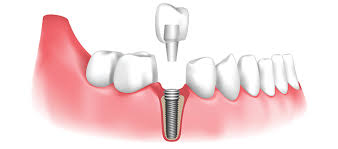Understanding The Risks And Complications Associated With Dental Implants
Dental implants have revolutionized the field of restorative dentistry, supplying a reliable and long-lasting solution for individuals who have lost a number of teeth. Unlike traditional dentures or bridges, dental implants provide a permanent replacement that mimics the structure and function of natural teeth. The implant itself is a small titanium post surgically placed to the jawbone, serving as an artificial tooth root. With time, thedental implants covered by insurance implant fuses with the bone through an activity called osseointegration, creating a stable foundation for a custom-made crown, bridge, or denture.

One of the very most significant great things about dental implants is their power to preserve jawbone health. Whenever a tooth is lost, the bone that supported it begins to deteriorate as a result of not enough stimulation. Dental implants prevent this bone loss by replicating the natural pressure exerted by real teeth during chewing. This not only maintains the form and structure of the facial skin but also helps prevent the sunken appearance that usually accompanies tooth loss. In addition, implants don't depend on neighboring teeth for support, unlike traditional bridges, which supports preserve the integrity of adjacent natural teeth.
The dental implant procedure typically occurs in several stages, starting with an initial consultation and comprehensive examination. During this stage, a dentist or oral surgeon assesses the patient's oral health, bone density, and overall suitability for the implant. If the in-patient qualifies, the titanium post is surgically inserted in to the jawbone. After having a healing amount of almost a year, during that the implant integrates with the bone, an abutment and custom crown are attached. Though the process might take time, the result is a tough, natural-looking tooth replacement that will last decades with proper care.
Dental implants offer numerous advantages beyond aesthetics and functionality. They give greater comfort and convenience in comparison to removable dentures, which can sometimes slip or cause irritation. Implants allow patients to eat, speak, and smile confidently, without worrying about the stability of these replacement teeth. Additionally, as they are produced from biocompatible materials, dental implants are resistant to decay and are often well-tolerated by the body.
To conclude, dental implants represent certainly one of the very best and advanced treatments designed for tooth loss. They combine durability, functionality, and a natural appearance to revive not only a person's smile but in addition their confidence and quality of life. With proper oral hygiene and regular dental checkups, implants provides a lifelong solution that enhances both oral health and overall well-being. As dental technology continues to advance, implants will remain a cornerstone of modern restorative dentistry.